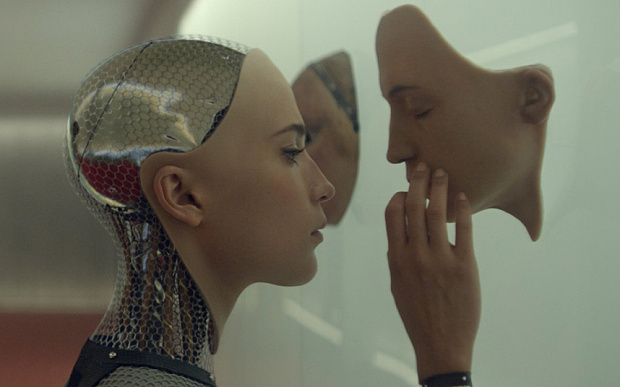
Alex Garland’s unsettling thriller Civil War is a different movie than anyone expects.
An America in the near future is embroiled in a civil war, but it’s NOT sectarian violence along the Red State/Blue State axis that divides America today. Writer-director Garland never explicitly explains the cause of the war, but he leaves enough clues, especially when a blowhard, propagandist President (Nick Offerman) refers to his “third term”, which he must have seized unconstitutionally. A band of journalists are dispassionate about what the two sides are fighting about, but forecast that the President is about to be deposed like despots Nicolae Ceausescu and Muammar Ghaddafi.
We see the civil war through the eyes of the journalists, led by two veterans from Reuters, war photographer Lee (Kirsten Dunst) and her writing partner Joel (Wagner Moura). They are joined by an old school New York Times political reporter, Sammy (Stephen McKinley Henderson) and a young free-lance photographer, Jessie (Cailee Spaenee of Priscilla), who idolizes Lee and is covering her very first conflict.
The four are on a quest for a journalistic holy grail, to secure what they will believe will be the very last interview with the President. They drive to DC from New York on a circuitous route, navigating through battle-torn upstate New York, western Pennsylvania, West Virginia and Virginia. Essentially, the plot of Civil War is their harrowing road trip through the war zone, moving from vignette to vignette, which range from terrifying to surreal.
Civil War‘s substantial impact comes from the depiction of the familiar in an unfamiliar setting. We are used to seeing the atrocities of insurgency wars, both in news reports and fictional stories. Accordingly, we may be inured to the horror of a mass grave of executed civilians – if it is in, say, Serbia or Sudan. The same is true of an encounter with a fighter with an assault weapon-bearing fighter who can kill you on a whim. Indeed, Civil War has much the same feel as movies like The Killing Fields, Salvador or Hotel Rwanda.
The shocking difference is these horrors are taking place in the old U S of A. (There’s a brief, jarring shot of a red, white and blue flag with only two stars.) At one point, Lee says that she has been sending home photos of other people’s civil conflicts as a warning to Americans – avoid this at all costs. Civil War is a message picture, and this is the message. Lee is used to witnessing nightmarish things and compartmentalizing them so she can go about her job amid the horrors. But seeing them in her home nation brings her anguish, which she is less and less able to contain.
The most surreal scene is when the journalists drive into a hamlet where life goes on as if there is no civil war, and an apathetic store clerk will only observe “from what we see on TV, it’s all for the best.”
Kirsten Dunst’s performance as Lee carries Civil War; she’s our moral center, a bad ass whose soul is crushed before our eyes.
Stephen McKinley Henderson, as usual, projects warmth, canniness and lived experience; he’s really a treasure. Cailee Spaenee is 26, but looks much younger (young enough to play a 14-year-old in Priscilla); unlike in Priscilla, her character in Civil War has a lot of agency, and she’s very good. Jesse Plemons (Dunst’s real life husband) is brilliant in a cameo as the random judge-and-jury soldier with an assault weapon.
Like many who had seen the trailer, I was expecting a much different movie – one I really didn’t want to experience. When I found that it was the creation of Alex Garland and had gotten some rave reviews, I decided to see it. But I put it off until I could go to the theater with my buddy Keith, who shares many of my sensibilities, for support.
As it turned out, Keith didn’t like Civil War, primarily because the source of the conflict is not explicitly explained, and the idea of a California-Texas alliance is so absurd. And, as a photographer himself, he was distracted by Jessie shooting with a film camera that she never reloads. Those criticisms, while reasonable, weren’t a problem for me.
This is only Garland’s fifth feature as a director, but he directed Ex Machina, my pick as the top film of 2014. Before that, Garland wrote 28 Days Later, which I would rate as the best and most thoughtful zombie movie of all time.
We’re used to rooting for one side or the other in a war movie, but Civil War is not about why a war is fought, it’s about the experience of civil war itself, and why it should be unthinkable.

